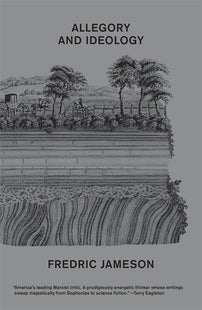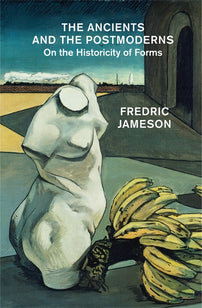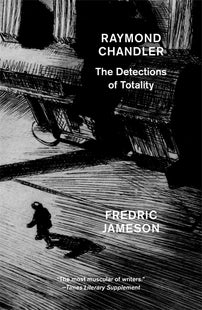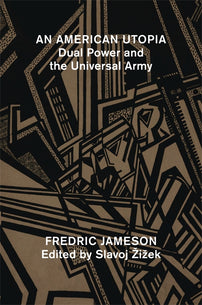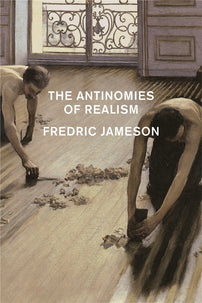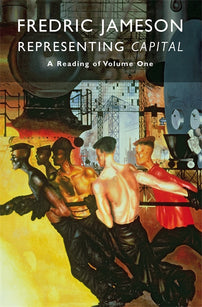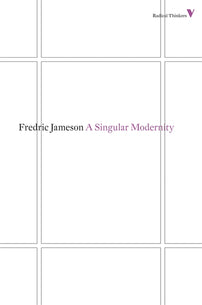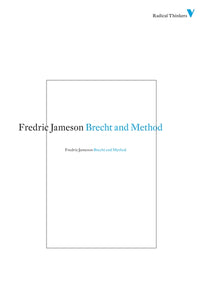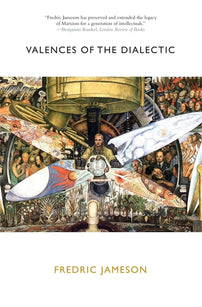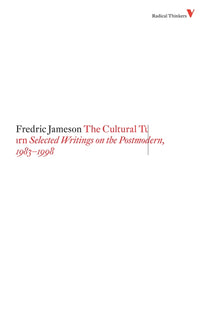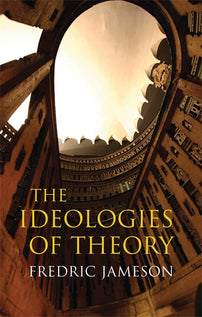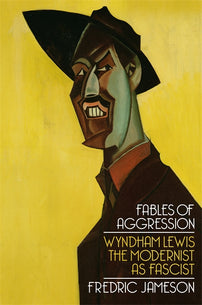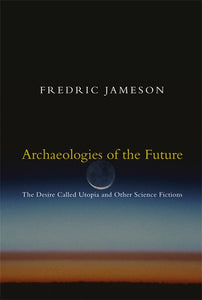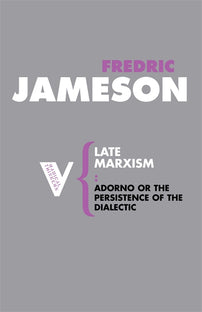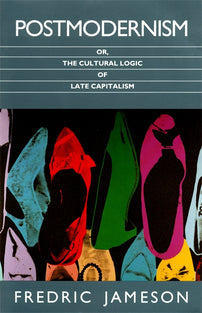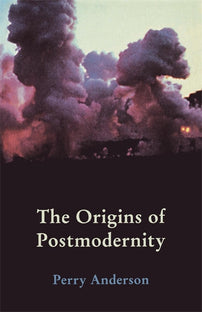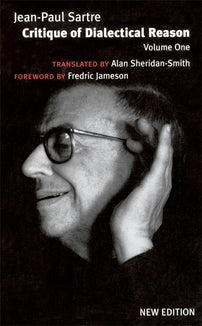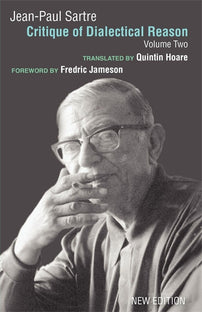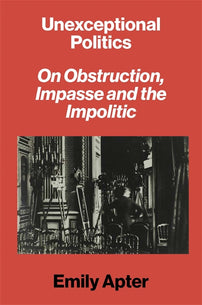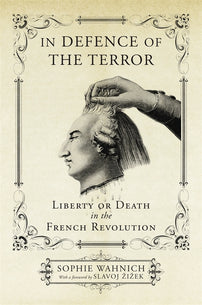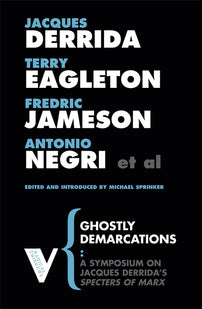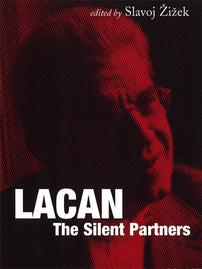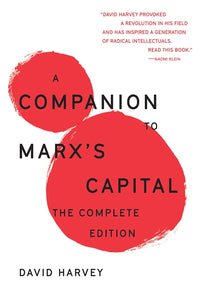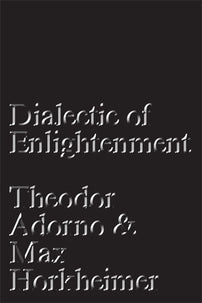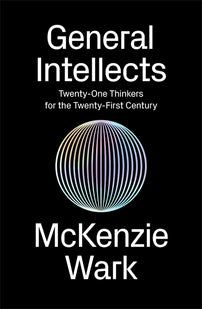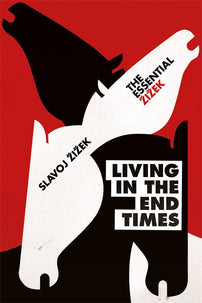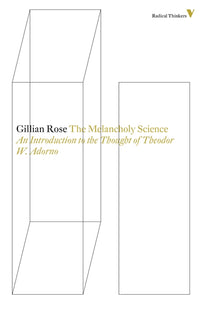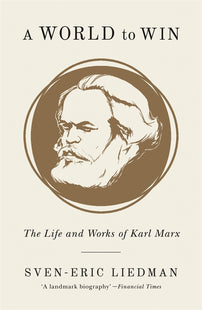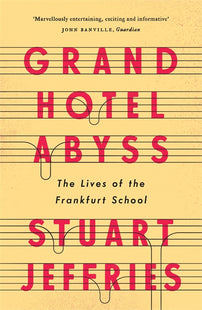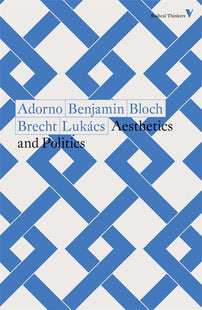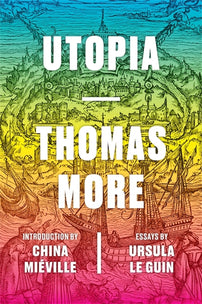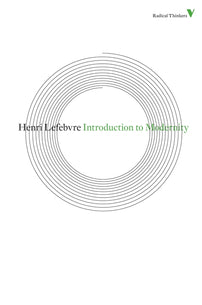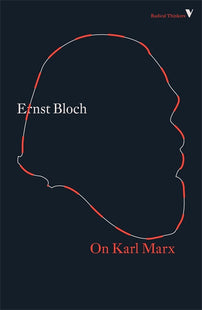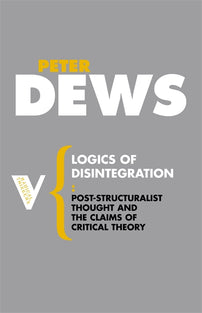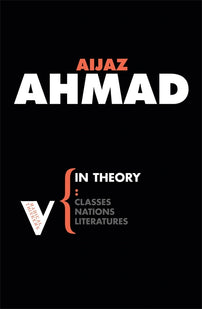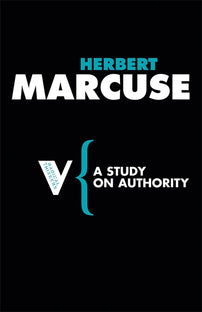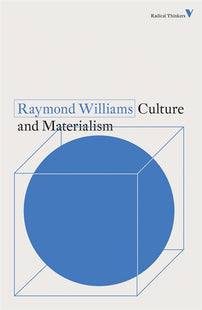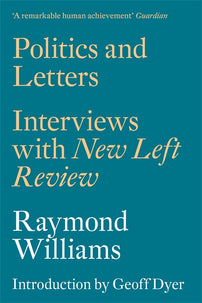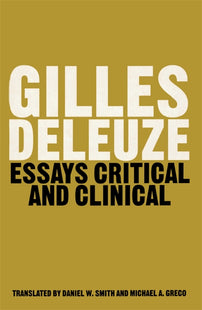Fredric Jameson: a theory bookshelf
Books from the leading Marxist critic, alongside related reading including Sartre, Adorno, and Žižek.

Fredric Jameson is Distinguished Professor of Comparative Literature at Duke University. The author of numerous books, he has over the last three decades developed a richly nuanced vision of Western culture's relation to political economy. He was a recipient of the 2008 Holberg International Memorial Prize. He is the author of many books, including The Ancients and the Postmoderns, The Antinomies of Realism, Postmodernism, Or, The Cultural Logic of Late Capitalism, The Cultural Turn, A Singular Modernity, The Modernist Papers, Archaeologies of the Future, Brecht and Method, Ideologies of Theory, The Hegel Variations and Representing Capital.
Allegory and Ideology is a major new work by Jameson that proposes a dialectic capable of holding together the heterogeneities that reflect our biological individualities, and our alienation to a disembodied new world of information and abstraction.
[book-strip index="1" style="buy"]Fredric Jameson takes on the allegorical form.
[book-strip index="2" style="buy"]High modernism is now as far from us as antiquity was for the Renaissance. Such is the premise of Fredric Jameson’s major new work in which modernist works, this time in painting and music, are pitted against late-modernist ones (in film) as well as a variety of postmodern experiments: all of which attempt, in their different ways, to invent new forms to grasp a specific social totality.
[book-strip index="3" style="buy"]In this major new study, the philosopher and cultural theorist Fredric Jameson offers a new reading of Hegel’s foundational text Phenomenology of Spirit.
[book-strip index="4" style="buy"]The master of literary theory takes on the master of the detective novel.
[book-strip index="5" style="buy"]Controversial manifesto by acclaimed cultural theorist debated by leading writers.
[book-strip index="6" style="buy"]The Modernist Papers is a tour de force of analysis and criticism, in which Jameson brings his dynamic and acute thought to bear on the modernist literature of the nineteenth and twentieth centuries.
[book-strip index="7" style="buy"]Fredric Jameson examines the most influential theories of artistic and literary realism, approaching the subject himself in terms of the social and historical preconditions for realism’s emergence. The realist novel combined an attention to the body and its states of feeling with a focus on the quest for individual realization within the confines of history.
[book-strip index="8" style="buy"]Representing Capital, Fredric Jameson's first book-length engagement with Marx's magnum opus, is a unique work of scholarship that records the progression of Marx's thought as if it were a musical score.
[book-strip index="9" style="buy"]A major interpretation of the concepts of modernism and modernity.
[book-strip index="10" style="buy"]The legacy of Bertolt Brecht is much contested, whether by those who wish to forget or to vilify his politics, but his stature as the outstanding political playwright and poet of the twentieth century is unforgettably established in this major critical work. Fredric Jameson elegantly dissects the intricate connections between Brecht's drama and politics, demonstrating the way these combined to shape a unique and powerful influence on a profoundly troubled epoch.
[book-strip index="11" style="buy"]A comprehensive analysis of the philosophy of the dialectic.
[book-strip index="12" style="buy"]An accessible introduction to the key writings on postmodernism by the influential Marxist critic.
[book-strip index="13" style="buy"]Ideologies of Theory, updated and available for the first time in a single volume, brings together theoretical essays that span Fredric Jameson’s long career as a critic. They chart a body of work suspended by the twin poles of literary scholarship and political history, occupying a space vibrant with the tension between critical exegesis and the Marxist intellectual tradition.
[book-strip index="14" style="buy"]Jameson’s controversial reading of one of the great twentieth-century writers.
[book-strip index="15" style="buy"]The relationship between utopia and science fiction, in the age of globalization.
[book-strip index="16" style="buy"]Jameson argues persuasively that Adorno's contribution to the development of Marxism remains unique and indispensable. He shows how Adorno's work on aesthetics performs deconstructive operations yet is in sharp distinction to the now canonical deconstructive genre of writing. He explores the complexity of Adorno's very timely affirmation of philosophy — of its possibility after the “end” of grand theory.
[book-strip index="17" style="buy"]In his most wide-ranging and accessible work, Frederic Jameson argues that postmodernism is the cultural response to the latest systemic change in world capitalism. He seeks here to crystallize a definition of a term which has taken on so many meanings that it has virtually lost all historical significance.
[book-strip index="18" style="buy"]A history of the postmodern, and the role of Fredric Jameson in shaping it.
[book-strip index="19" style="buy"]Volume One of Sartre's intellectual masterpiece, introduced by Fredric Jameson.
[book-strip index="20" style="buy"]Volume Two of Sartre's intellectual masterpiece, introduced by Fredric Jameson.
[book-strip index="21" style="buy"]A new vision of politics “below the radar”
[book-strip index="22" style="buy"]Provocative reassessment of the Great Terror as a price worth paying.
[book-strip index="23" style="buy"]Mapping Ideology is a comprehensive reader covering the most important contemporary writing on the subject. Including Slavoj Žižek’s study of the development of the concept from Marx to the present, assessments of the contributions of Lukács and the Frankfurt School by Terry Eagleton, Peter Dews and Seyla Benhabib, and essays by Adorno, Lacan and Althusser, Mapping Ideology is an invaluable guide to the most dynamic field in cultural theory.
[book-strip index="24" style="buy"]In a timely intervention in one of today's most vital theoretical debates, the contributors to Ghostly Demarcations respond to the distinctive program projected by Specters of Marx. The volume features sympathetic meditations on the relationship between Marxism and deconstruction by Fredric Jameson, Werner Hamacher, Antonio Negri, Warren Montag, and Rastko Möcnik, brief polemical reviews by Terry Eagleton and Pierre Macherey, and sustained political critiques by Tom Lewis and Aijaz Ahmad. The volume concludes with Derrida's reply to his critics in which he sharpens his views about the vexed relationship between Marxism and deconstruction.
[book-strip index="25" style="buy"]A dazzling re-evaluation of Jacques Lacan, uncovering his hidden inspirations.
[book-strip index="26" style="buy"]For nearly forty years, David Harvey has written and lectured on Capital, becoming one of the world’s foremost Marx scholars. Based on his recent lectures, this current volume—finally bringing together his guides to volumes I, II and much of III—presents this depth of learning to a broader audience, guiding first-time readers through a fascinating and deeply rewarding text. A Companion to Marx’s Capital offers fresh, original, and sometimes critical interpretations of a book that changed the course of history and, as Harvey intimates, may do so again.
[book-strip index="27" style="buy"]A classic of twentieth-century thought, charting how society devours itself through the very rationality that was meant to set it free.
[book-strip index="28" style="buy"]A guide to the thinkers and ideas that will shape the future.
[book-strip index="29" style="buy"]Žižek analyzes the end of the world at the hands of the “four riders of the apocalypse.”
[book-strip index="30" style="buy"]Gillian Rose shows Adorno’s most important contribution to be his founding of a Marxist aesthetic that offers a sociology of culture, as demonstrated in his essays on Kafka, Mann, Beckett, Brecht and Schönberg. Finally, Adorno’s ‘Melancholy Science’ is revealed to offer a ‘sociology of illusion’ that rivals both structural Marxism and phenomenological sociology as well as the subsequent work of the Frankfurt School.
[book-strip index="31" style="buy"]The definitive biography of Karl Marx.
[book-strip index="32" style="buy"]Who were the Frankfurt School—Benjamin, Adorno, Marcuse, Horkheimer—and why do they matter today?
[book-strip index="33" style="buy"]An intense and lively debate on literature and art between thinkers who became some of the great figures of twentieth-century philosophy and literature.
[book-strip index="34" style="buy"]Five-hundred-year anniversary edition of More’s Utopia, with writing from major science fiction writers.
[book-strip index="35" style="buy"]Benjamin's most sustained and original work, and one of the main sources of literary modernism.
[book-strip index="36" style="buy"]The sociologist and philosopher analyses the dawning of modernity.
[book-strip index="37" style="buy"]With a demonstrably thorough grasp of Marxist thought, and seemingly effortless literary flair, Ernst Bloch provides both the well-versed reader and the novice a truly enjoyable introduction to one of the most influential thinkers in history.
[book-strip index="38" style="buy"]A major work of Marxist theory—rigorous, clear-minded and well-researched.
[book-strip index="39" style="buy"]Ahmad reworks the terrain of cultural theory in this spirited critique.
[book-strip index="40" style="buy"]Baudrillard sees the power of the terrorists as lying in the symbolism of slaughter – not merely the reality of death, but in a sacrifice that challenges the whole system. Where previously the old revolutionary sought to conduct a struggle between real forces in the context of ideology and politics, the new terrorist mounts a powerful symbolic challenge which, when combined with high-tech resources, constitutes an unprecedented assault on an over-sophisticated and vulnerable West. This new edition is updated with the essays “Hypotheses on Terrorism” and “Violence of the Global.”
[book-strip index="41" style="buy"]The great theorist of radical liberation analyzes the relationship between authority and freedom.
[book-strip index="42" style="buy"]A comprehensive introduction to the work of one of the outstanding intellectuals of the twentieth century.
[book-strip index="43" style="buy"]The celebrated literary critic Raymond Williams, in his own words.
[book-strip index="44" style="buy"]The essays collected here testify to Deleuze’s fundamental conviction that philosophy cannot be undertaken independently of science and art. As so often in his writing, the names of philosophers such as Plato, Spinoza, Kant, Nietzsche and Heidegger appear beside those of literary figures including Melville, Whitman, D.H. Lawrence, Beckett and Artaud. With this book, Deleuze’s life-long ambition to dismantle the barriers between art and its adjacent domains is brilliantly realized.

